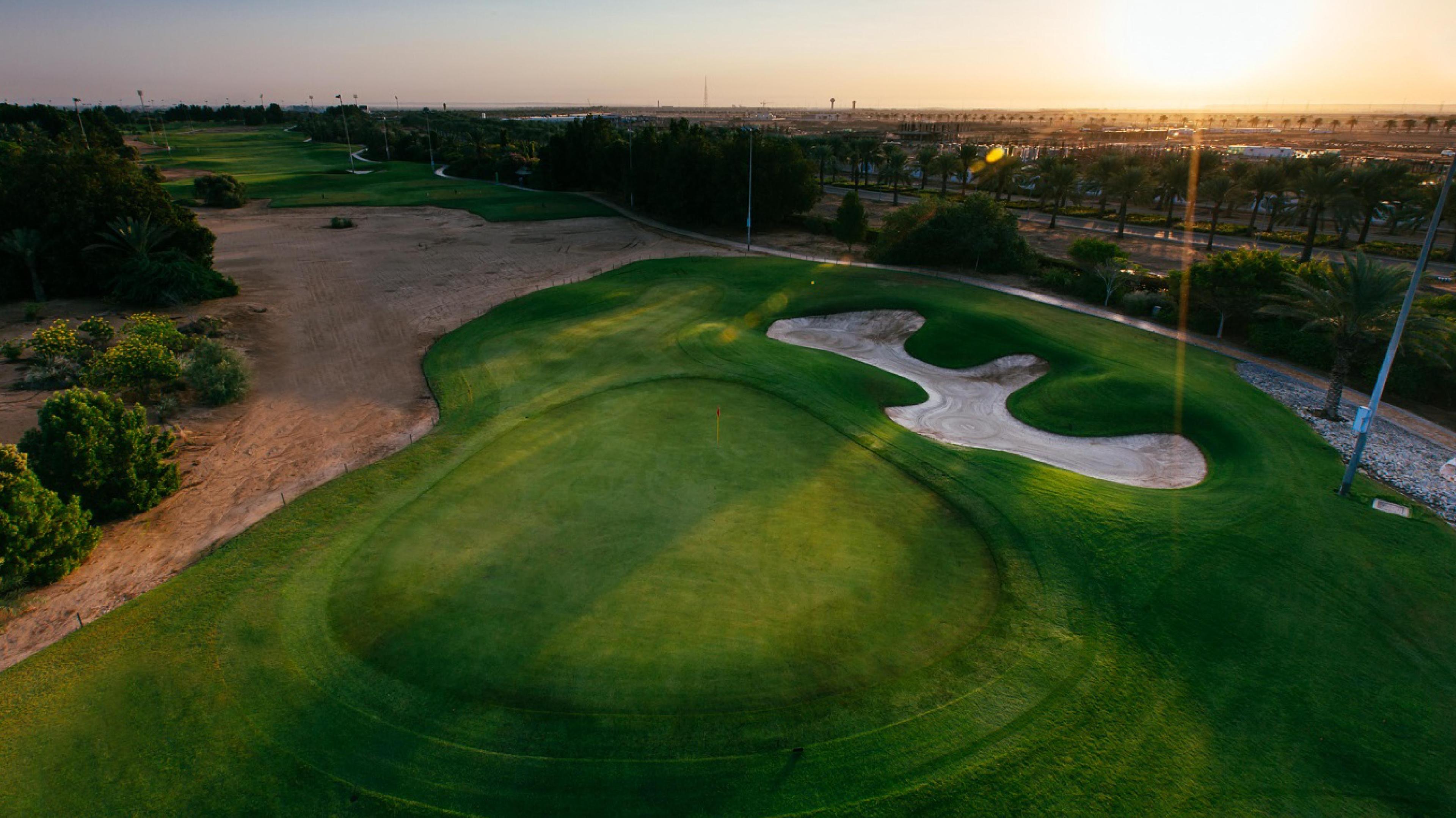Example 2
Updates

Four Saudi Golf courses officially certified by GEO foundation
08 November, 2022, Riyadh, Saudi Arabia: Golf Saudi has once again shown its commitment to sustainability, by announcing during this week’s Aramco Team Series-Jeddah that three of its golf clubs have successfully achieved certification by GEO Foundation for Sustainable Golf, the international non-profit entirely dedicated to helping accelerate sustainability in and through golf. Three golf clubs in Riyadh and Jeddah respectively: Dirab Golf & Country Club, Riyadh Golf Club and Royal Greens Golf & Country Club have been recognized for meeting the international standard for sustainability in golf and agreeing to further improvement over the next three years. Also, often renowned for its sustainability initiatives, Safaa Golf Club in King Abdullah University of Science and Technology (KAUST), maintained and operated by Mohawarean Specialized Golf Services (MGS) achieved the certification for its commitment, understanding and efforts. It is the first private golf facility in Saudi Arabia to achieve certification in cooperation with the KAUST Environmental Management Department.
In 2020, Golf Saudi launched its comprehensive National Golf Sustainability Strategy, which since its inception has embraced an innovative culture and ambitious outlook across key environmental, economic and social aspects of the sport. A key component of the strategy was ensuring that all Golf clubs in Saudi Arabia work through a set of continual improvement points that will guide their sustainability progress and see these facilities raising the bar even higher for sustainable golf in Saudi Arabia. So, by achieving GEO certification these courses are now all on a journey to continue to improve, invest and enhance their sites to foster fauna and flora, conserve natural resources, support their communities and focus on climate related actions.
Commenting on the four clubs’ achievement, His Excellency Yasir O. Al-Rumayyan, Chairman of Golf Saudi and the Saudi Golf Federation, said:
“Ever since the formation of Golf Saudi, we have continued to demonstrate the strength of our collective commitment as well as our leadership in sustainability. Following news of GEO certification across four clubs in the Kingdom shows that we are on track in our journey towards playing an active part in our sport’s contribution to prioritising environmental and climate issues,” said Al-Rumayyan. “This follows on last year’s news when Golf Saudi became an official signatory of the UN Sport for Climate Framework, confirming our collective mission to contribute actively to Saudi’s Vision 2030 and to be a part of the Kingdom’s low-carbon future.
”Jonathan Smith, Founder and Executive Director of GEO Foundation, said: “It is encouraging to see Golf Saudi making progress in the delivery of their national sustainability strategy. Two years on from the launch of this comprehensive framework, the national association continues to provide direction for all involved in golf in Saudi Arabia and this now extends to these four facilities, which have received GEO certification in light of work to date and also commitments for continual improvement.
” Golf Saudi has set out a wide range of golf industry policies around carbon and climate, ecosystem restoration, the circular economy and water stewardship. These policies caught the eye of both Safaa Golf Club and MGS, in particular General Manager Nicholas Davies, who manages the club in KAUST. Davies was delighted to work alongside Golf Saudi and to use the sustainability programmes from GEO Foundation to implement the National Golf Sustainability Strategy at the club, saying:
“To work firsthand with both teams to ensure that we not only implement the highest standards but also build environmental innovation into the development and operation of our facility. Some of our key focuses are ecosystem restoration through golf here within KAUST; harnessing renewable energy; comprehensive water resource management; and building circularity into our club’s supply chain.
”All clubs will also have their carbon balances calculated, tracking all data needed for emissions and sequestration through OnCourse Saudi digital platform provided by GEO Foundation. By doing this, each club will be continuing and building on the momentum that began back in 2020 with the launch of the National Golf Sustainability Strategy; and the footprint will help identify areas for further reduction.
Some of the main highlights of each venue include:
SAFAA
•Local school children engaged with a ‘Biodiversity stop’ educational area and beehive building
• Ecological survey identifies over 160 different species living on-site, including rare native flora Odontanthera
•Insect hotels built for spiders, leaf cutter bees and other essential pollinators
• Manual weeding of undesired ‘Egyptian’ grass with salt solution and raking reduces herbicide use by 97%
• Biological control of mosquito breeding saves 37kg of pesticides per year
•Damage to native palm trees by the red palm weevil is reduced using a safer pesticide
DIRAB
Maintenance facility has spill kits, new bunding for the diesel tank, and a new wash bay built to capture and remove sediment
• Turfgrass area reduced by over two hectares saving 15% of total water use
• Eucalyptus and conocarpus trees replaced with native species that require less water
•No spray zones present around water features
•Bird houses provided around the course
RIYADH
•Recycling system is running in the clubhouse
•Spill kits are installed at maintenance facility
•Water in waterways have been reduced by 60% when filling irrigation storage to avoid loss through evaporations and algae build-up
• 750m3 of water saved per day in irrigation improvements including new part-circle sprinklers and reduced number of turf line
• Habitats identified throughout the course and signage about wildlife installed
•Bridge renovation used materials all sourced on-site
•Members’ weekly electronic newsletter includes features on the environment
ROYAL GREENS
•More than 2500m2 turf area reduced saving water and fuel to maintain - and adding habitat
•Irrigation efficiency achieved with new sprinkler heads on greens and a hand watering programme
•Internal communications program for sustainable procurement and waste reduction
•Compost machine used to reduce waste
•Waste separation introduced around club
•Spill kits installed at the maintenance facility
•Royal Greens Junior Stars programme hoping to attract 100 kids for coaching and national team competitions